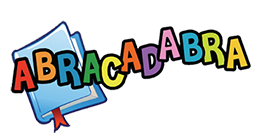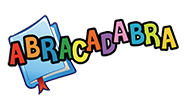Activities: Sounds, Letters, and Words (Alphabetics)
Word Matching
Overview
Objective
The student will match words that have the same beginning or ending sound.
Facilitation Tips
Students can work in pairs to match words. Suggest one student match words until a he or she makes a mistake. Then the second student takes over to complete the activity.
Levels
Students have the choice of playing with 8 cards (4 pairs), 12 cards (6 pairs), and 16 cards (8 pairs).
Level 1: Same beginning sounds.
Level 2: Same ending sounds.
Activity Insights
What is Word Matching?
This activity focuses on phonological awareness, particularly recognizing the onset and rime in word families (bat, cat, chat). An association with the visual representation of the words' onsets and rimes is introduced as well. The emphasis in this activity is not recognizing the written words but rather hearing the distinct sounds at the beginning and end of the words.
Why do students struggle with Word Matching?
Students have difficulty when they do not recognize the onset and rime in the words or cannot identify them.
How do I further support students?
With a small group of students, write the letter on board or show a flash card with the letter. Tell the students the name of the letter and the sound it makes (make sure to elongate the sound of the letter). Introduce two-letter words at a time. Once students correctly identify the two phonemes in two successive trials, introduce a third sound. Blends and digraphs should only be introduced once the student has mastered the three phoneme words.
Linked Stories
Darryl! Don't Dawdle
Feelings
Henny Penny
How a Bean Sprouts
I Can Move Like a ...
The Dove and the Ant
The Frogs and the Well
The Little Red Hen
The Three Billy Goats Gruff
When I Open my Eyes
Related Activities
Basic Decoding
Matching Sounds
Rhyme Matching
Same Phoneme
Same Word
Syllable Counting
Word Families
Resources
Activities: Sounds, Letters, and Words (Alphabetics)
Word Matching
Objective
The student will match words that have the same beginning or ending sound.
Facilitation Tips
Students can work in pairs to match words. Suggest one student match words until a he or she makes a mistake. Then the second student takes over to complete the activity.
Levels
Students have the choice of playing with 8 cards (4 pairs), 12 cards (6 pairs), and 16 cards (8 pairs).
Level 1: Same beginning sounds.
Level 2: Same ending sounds.
Insights
What is Word Matching?
This activity focuses on phonological awareness, particularly recognizing the onset and rime in word families (bat, cat, chat). An association with the visual representation of the words' onsets and rimes is introduced as well. The emphasis in this activity is not recognizing the written words but rather hearing the distinct sounds at the beginning and end of the words.
Why do students struggle with Word Matching?
Students have difficulty when they do not recognize the onset and rime in the words or cannot identify them.
How do I further support students?
With a small group of students, write the letter on board or show a flash card with the letter. Tell the students the name of the letter and the sound it makes (make sure to elongate the sound of the letter). Introduce two-letter words at a time. Once students correctly identify the two phonemes in two successive trials, introduce a third sound. Blends and digraphs should only be introduced once the student has mastered the three phoneme words.
Linked Stories
Darryl! Don't Dawdle
Feelings
Henny Penny
How a Bean Sprouts
I Can Move Like a ...
The Dove and the Ant
The Frogs and the Well
The Little Red Hen
The Three Billy Goats Gruff
When I Open my Eyes
Related Activities
If you notice your student struggling with this activity, suggest one of the following activities to further practice and reinforce the skill.
Basic Decoding
Matching Sounds
Rhyme Matching
Same Phoneme
Same Word
Syllable Counting
Word Families

